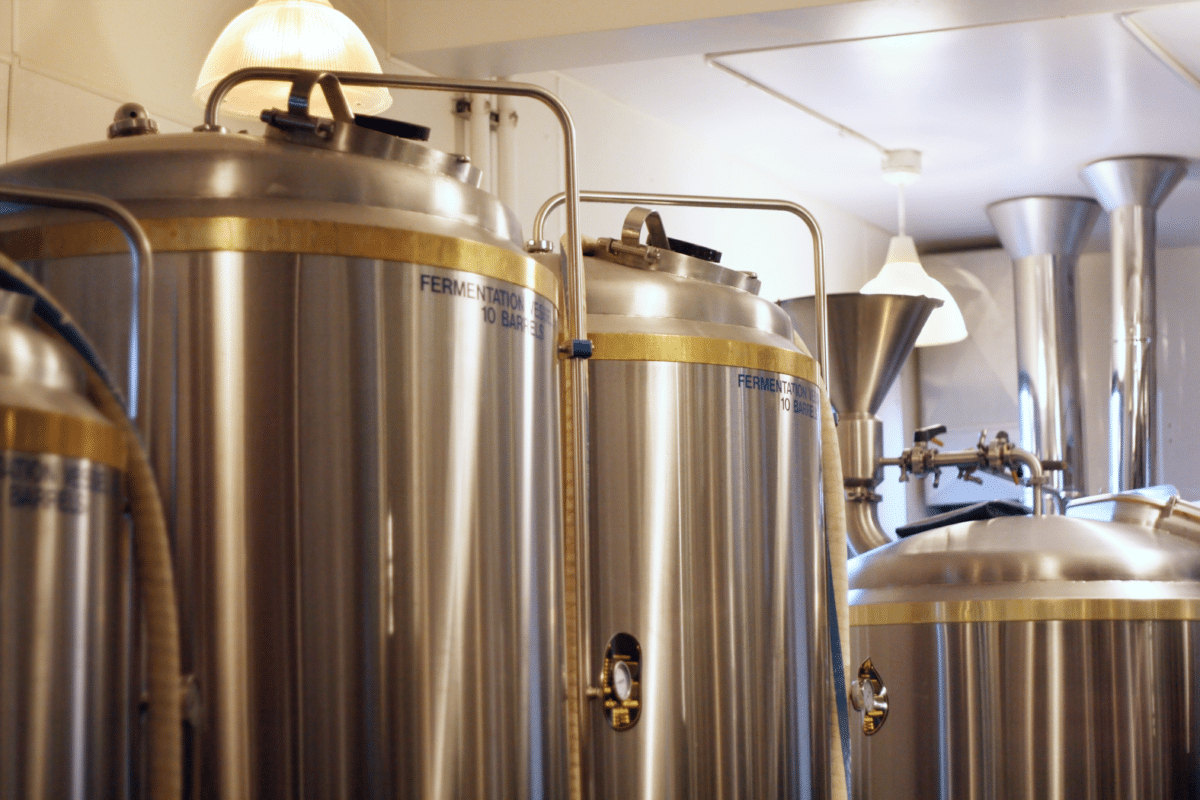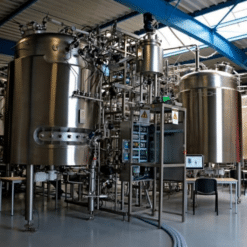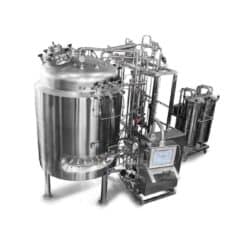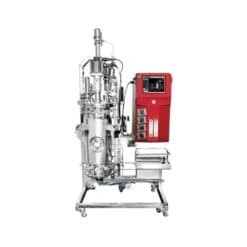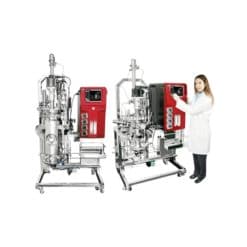New Laboratory Equipment, Fermentation
Unpacking GMP Standards in Large-Scale Fermentation: Ensuring Quality and Compliance
Introduction
In biopharmaceutical manufacturing, large-scale fermentation plays a pivotal role in producing valuable therapeutic proteins, enzymes, and other biologics. To ensure the safety, efficacy, and quality of these biopharmaceutical products, adherence to Good Manufacturing Practice (GMP) standards is crucial. This blog post will delve into the key elements of GMP standards in large-scale fermentation, highlighting their significance in maintaining regulatory compliance and achieving high-quality bioprocessing outcomes.
Facility Design and Equipment
GMP-compliant large-scale fermentation facilities should be designed to meet stringent requirements for cleanliness, sterility, and efficient workflow. The design should consider facility layout, cleanroom classifications, air handling systems, and material flow to prevent cross-contamination and maintain process integrity. The selection and qualification of equipment, including fermenters, bioreactors, and ancillary systems, should also adhere to GMP guidelines, ensuring proper functionality, calibration, and validation.
Documentation and Record Keeping
Accurate documentation and record keeping are vital components of GMP compliance. Detailed documentation should encompass standard operating procedures (SOPs), batch records, equipment logs, and maintenance records. This documentation should include information on critical process parameters, raw material specifications, inoculation and fermentation conditions, sampling protocols, and quality control tests. Proper record-keeping enables traceability and facilitates process optimization, troubleshooting, and regulatory audits.
Process Validation and Control
GMP standards necessitate the validation of fermentation processes to ensure their reproducibility and reliability. Process validation involves establishing process parameters, conducting scale-up studies, and performing performance qualification. Critical process parameters, such as temperature, pH, dissolved oxygen, agitation, and nutrient feed profiles, must be monitored, controlled, and documented throughout the fermentation process. Robust process control systems, including automated data acquisition and control systems, are vital in maintaining process consistency and product quality.
Raw Material Control
Strict control over the quality and traceability of raw materials used in large-scale fermentation is imperative. GMP standards require the implementation of procedures for the qualification, receipt, inspection, and storage of raw materials, including media components, growth factors, and fermentation substrates. Thorough testing of raw materials for identity, purity, potency, and microbial contaminants is essential to ensure the integrity of the fermentation process and the final product.
Environmental Monitoring and Cleanliness
Maintaining a controlled and clean environment is paramount in large-scale fermentation. GMP standards emphasize regular environmental monitoring through air and surface sampling to assess microbial contamination risks. This includes monitoring the levels of viable particles, microorganisms, and potential contaminants in the manufacturing area. Proper cleaning and sanitization practices, including cleaning validation, help prevent cross-contamination and ensure a sterile environment for successful fermentation.
Quality Control and Testing
GMP-compliant large-scale fermentation involves rigorous quality control measures. In-process sampling and testing at various stages of fermentation enable real-time monitoring of critical quality attributes. Quality control tests may include cell density measurement, metabolite analysis, protein quantification, and endotoxin testing. Implementing a comprehensive quality management system, including final product release testing, ensures that the biopharmaceuticals meet established specifications and comply with regulatory requirements.
shop gmi fermenters & bioreactors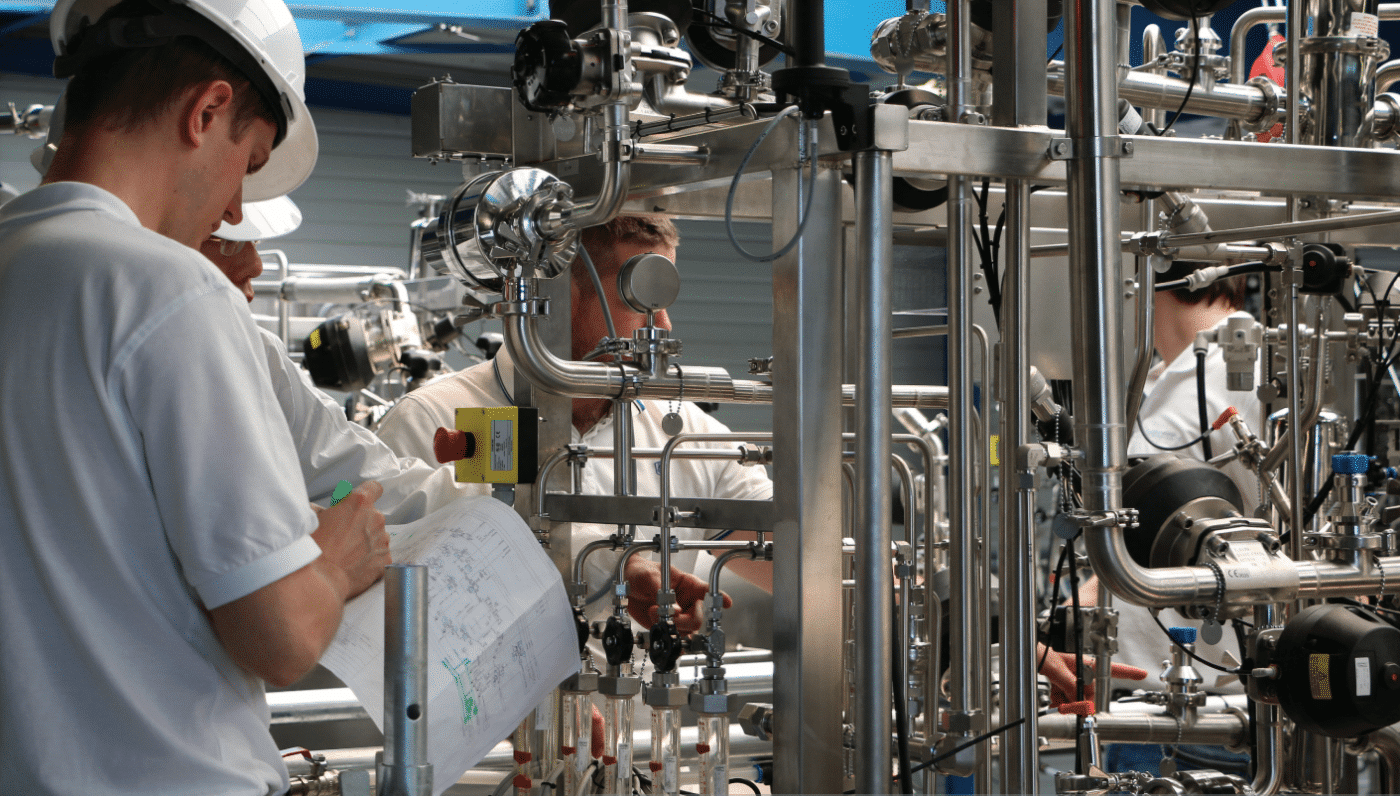
GPC – Innovative Bioreactors
- Made in France
- Exclusively available at GMI
- Completely Customizable, Cost-efficient, Intuitive Software
Conclusion
Large-scale fermentation is a complex and vital process in biopharmaceutical manufacturing, and adherence to GMP standards is paramount to ensure product quality, patient safety, and regulatory compliance. By incorporating facility design, equipment qualification, robust documentation, process validation, raw material control, environmental monitoring, and quality control measures, manufacturers can achieve the highest standards of GMP compliance in large-scale fermentation. By prioritizing GMP guidelines, biopharmaceutical companies can maintain the integrity of their processes, produce high-quality biologics, and contribute to advancements in patient care.

